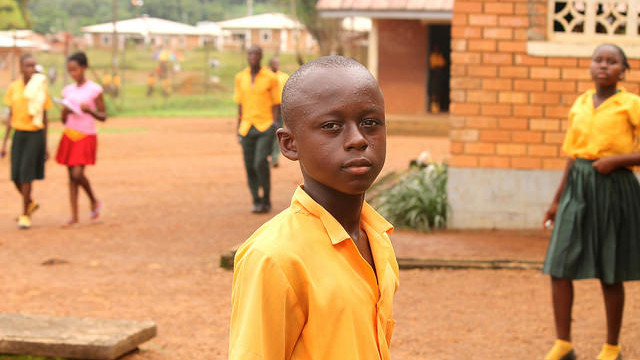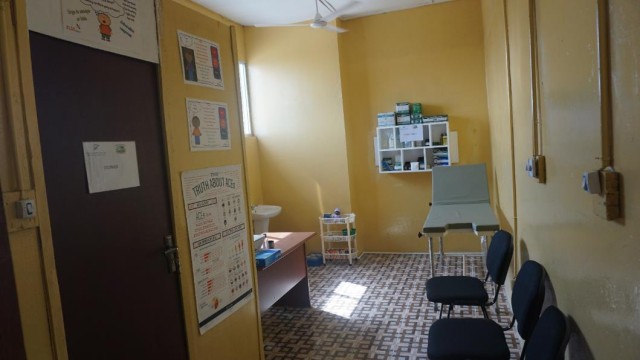Years ago when I served as a teacher in both the United States and other parts of Africa, I was not just delivering lessons. I was also paying close attention to my students’ mental health.
For pupils who dealt with mental health issues like depression, I felt it was my duty to help provide them with care. In Liberia, unlike in more developed nations, we generally don’t have clinicians in schools to deal with depression.
Most schools are not equipped to provide health care services, let alone mental health care for students. We don’t have access to resources like trained social workers who can identify potential concerns and refer a child to a psychiatrist for treatment.
This year, the theme for World Health Day focuses on depression, this is an issue we have to talk about.
According to the World Health Organization, 10 percent of people in any given population may suffer from common mental health disorders, such as mild-moderate depression, anxiety, alcohol and substance misuse, and three percent from a severe mental illness like schizophrenia and bipolar depression.
This means that out of four million Liberians, 400,000 people may be affected, and 130,000 of them may suffer from severe mental illness. Further, health experts have recognized that the number of people living with depression and post-traumatic stress disorder in Liberia may be significantly higher considering the country’s history of violent civil war and the Ebola outbreak, both of which exposed the population to long periods of traumatic events.
Post-conflict societies face a unique set of challenges when it comes to mental health.
We have to talk about this. When we discuss pursuing development we talk about improving access to things like education, electricity, safe water and sanitation facilities, and healthcare. Mental health must also become a part of this conversation.
A study published in the American Journal of Psychiatry found that growing up in poverty can have a physiological effect on the brain, and may actually alter connectivity, ultimately making children living in poverty more susceptible to depression.
We must speak of depression associated with poverty, which can begin in childhood and develop further into adulthood, recognizing that it’s not always easily recognizable.
Unlike in the U.S., our schools lack trained personnel to spot the signs of depression in students. However, as educators, we can play a critical role in recognizing and helping to address these issues during early onset, before it progresses into a more serious condition.
First, we have to understand and appreciate what depression is. According to WHO, depression is an illness characterized by persistent sadness and a loss of interest in activities one would normally enjoy, accompanied by an inability to carry out daily activities, for at least two weeks.
By understanding what depression is, and that symptoms present differently among children, we can better identify and act on it. Common symptoms include a loss of energy, change in appetite, sleeping more or less, anxiety, reduced concentration, indecisiveness, restlessness, feelings of worthlessness, guilt, or hopelessness, and thoughts of self-harm or suicide.
Perhaps just as importantly, educators can help address the stigma often associated with mental illness, helping their students to understand that depression is not a sign of weakness. We live in societies that tend to think it is. Worse, I have seen cases where some believe depression is a sign of witchcraft.
The reality is, depression can happen to anyone.
Globally, teachers take on many roles beyond simply educating the youth. It’s difficult to overstate the importance and impact of their leadership with regard to the overall wellbeing of their students. Teachers, as pillars of trust, are in a position to encourage their students to speak to them, in confidence, if they think they may be depressed.
The good news is, depression is treatable. However, if we want to get there, we must talk about it, honestly and openly. Raising awareness and working to destigmatize mental illness is the critical first step.
Liberia’s Ministry of Education is working to do its part. Last month we launched an initiative with the Ministry of Health, and other ministries, to train over 200 mental health professionals, which will significantly increase access to mental health services for Liberians. In 2016, we trained 9,052 teachers and 4,318 parent-teacher association members, across all 15 counties, in psychosocial support services.
As I write this, we’re partnering with UNICEF, with USAID’s support, to train teachers, private and public, in psychosocial support services. We want to reach as many as 10,000 teachers across Liberia.
Effectively addressing mental health in Liberia will require cooperative and coordinated efforts. We are receiving support from partners, like the Carter Center, who helped open a school-based clinic at the Liberia Marketing Association’s daycare and kindergarten school at the Waterside Market.
Facilities like this will help us better address the needs of children suffering from depression and other mental illnesses during school hours, and could easily be replicated across Liberia and in other countries with limited mental healthcare infrastructure in place.





